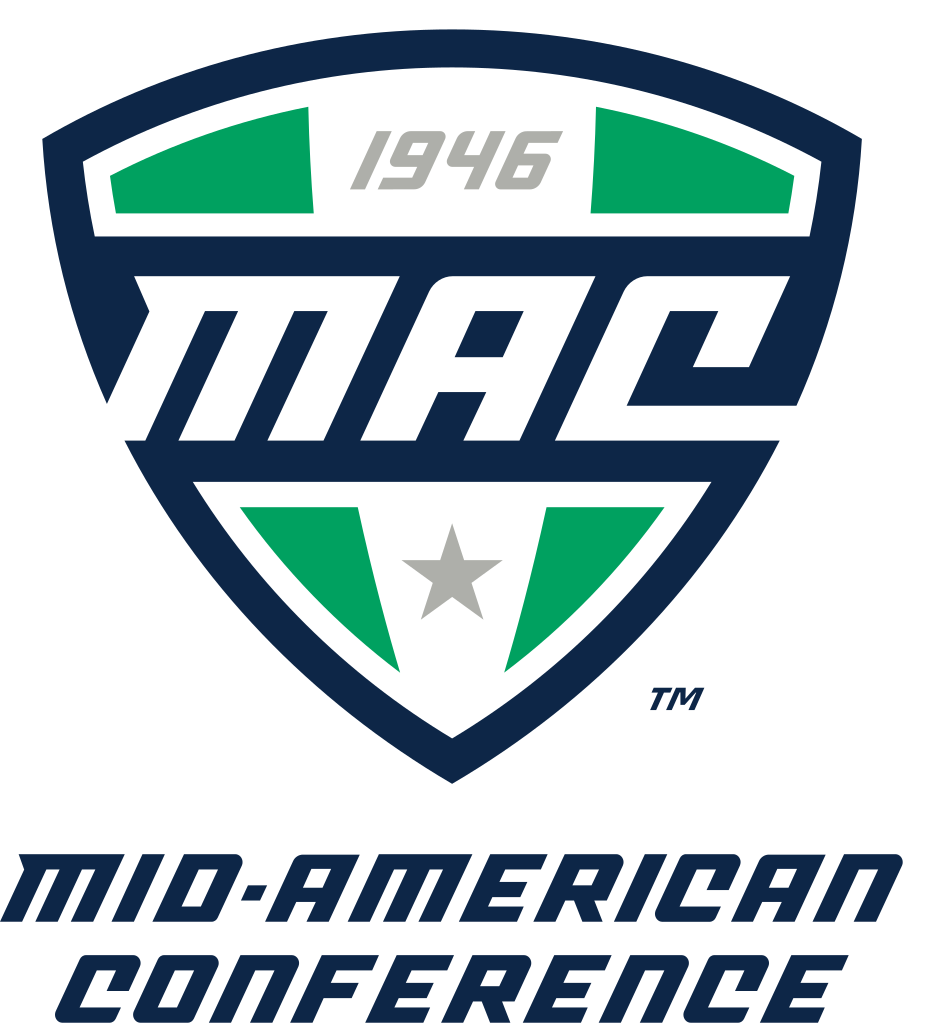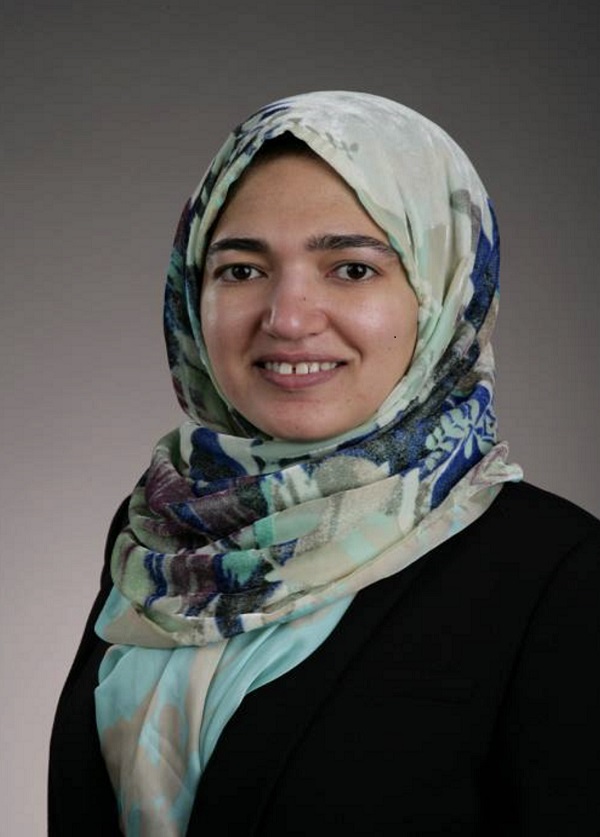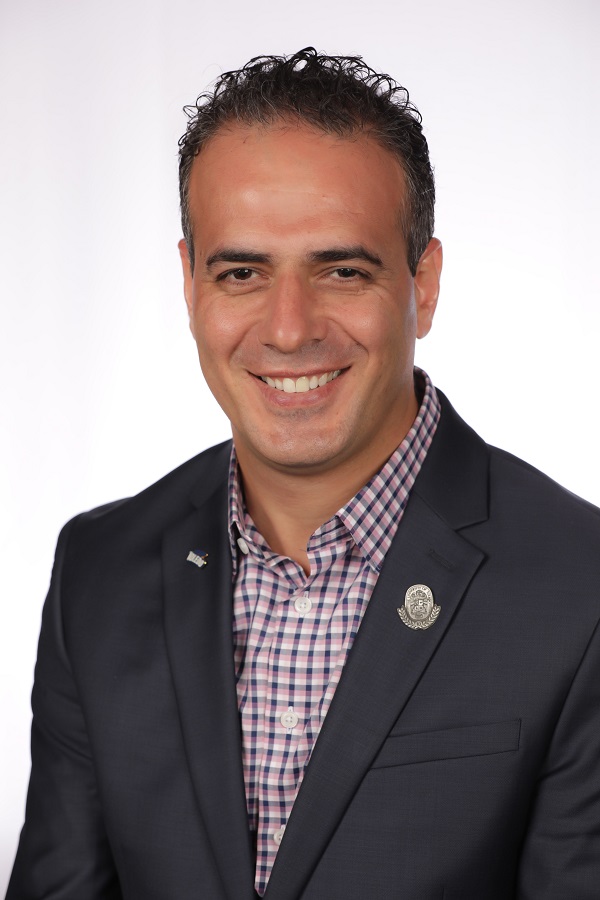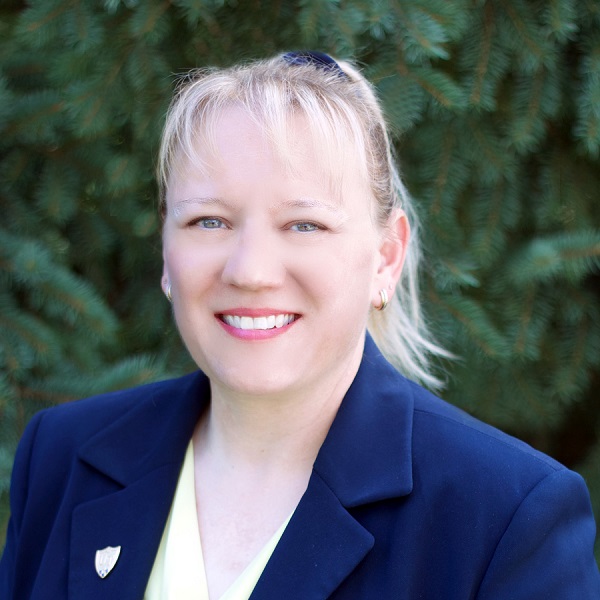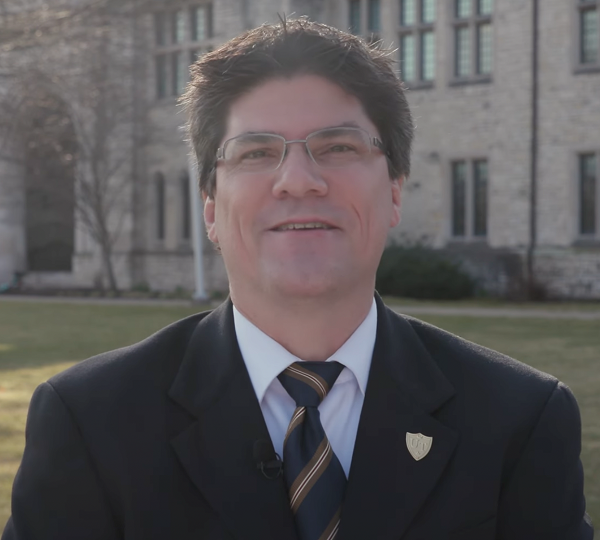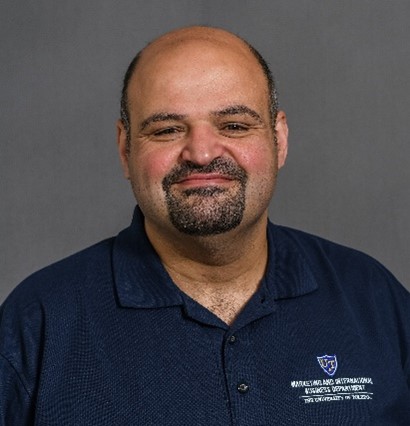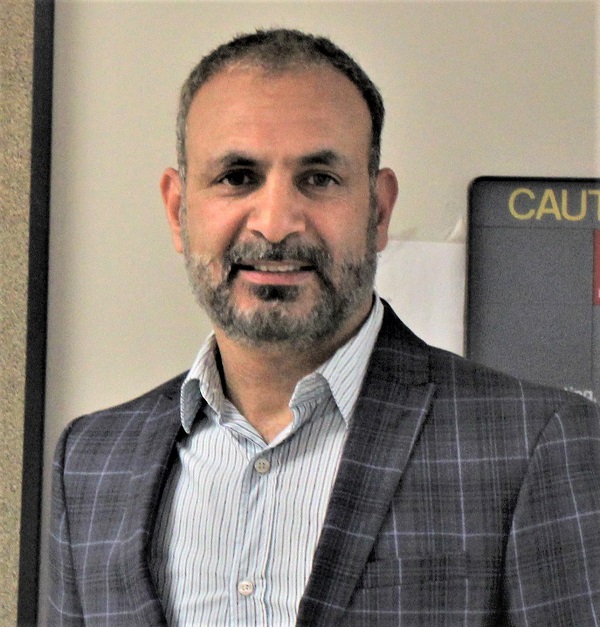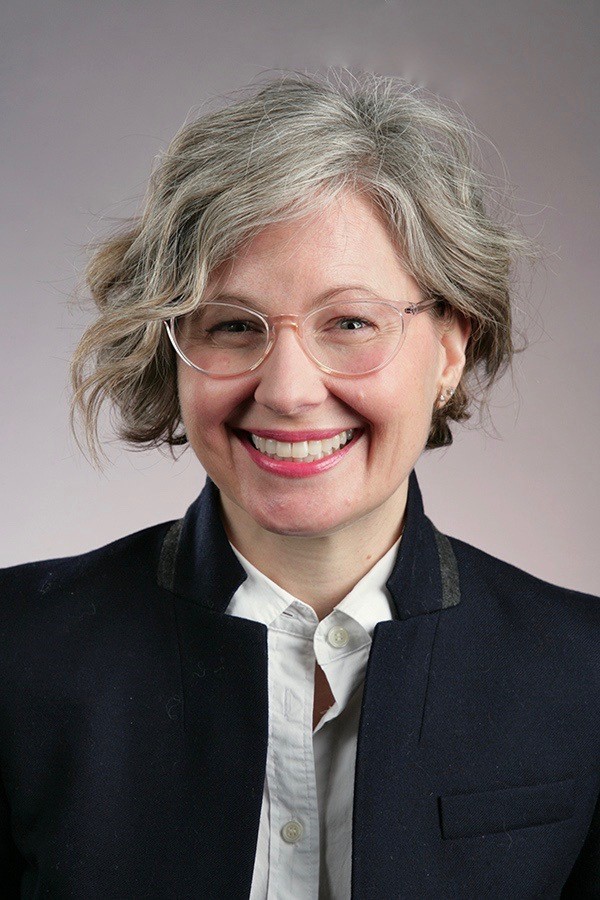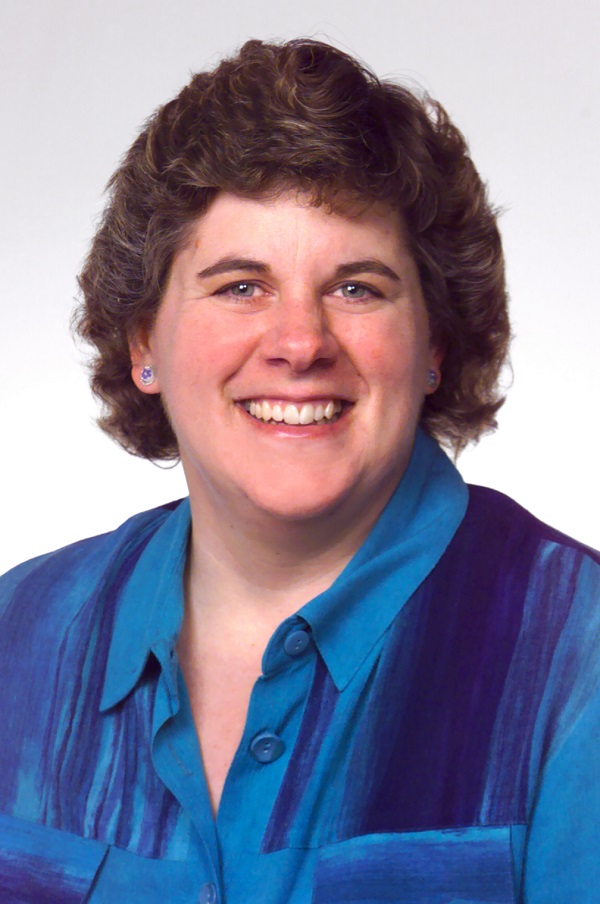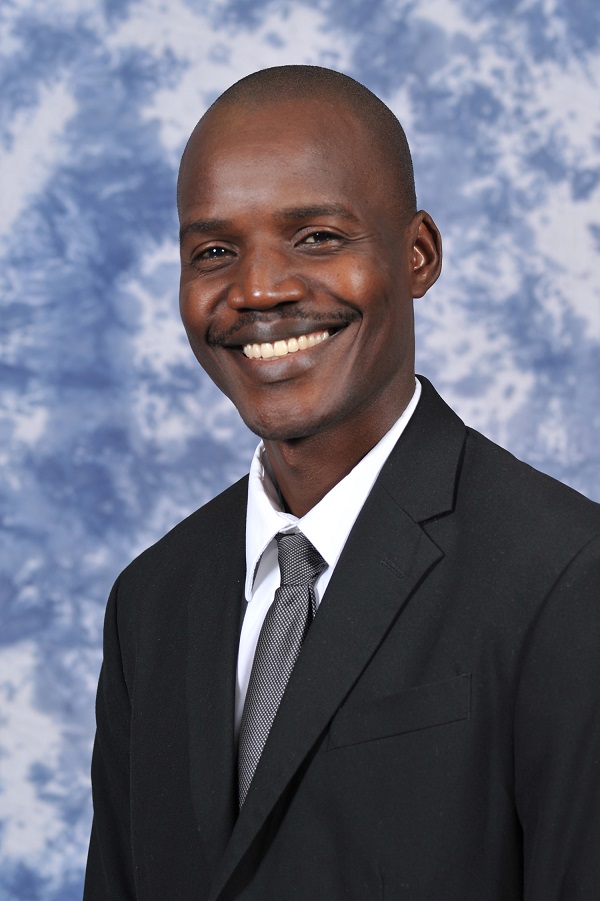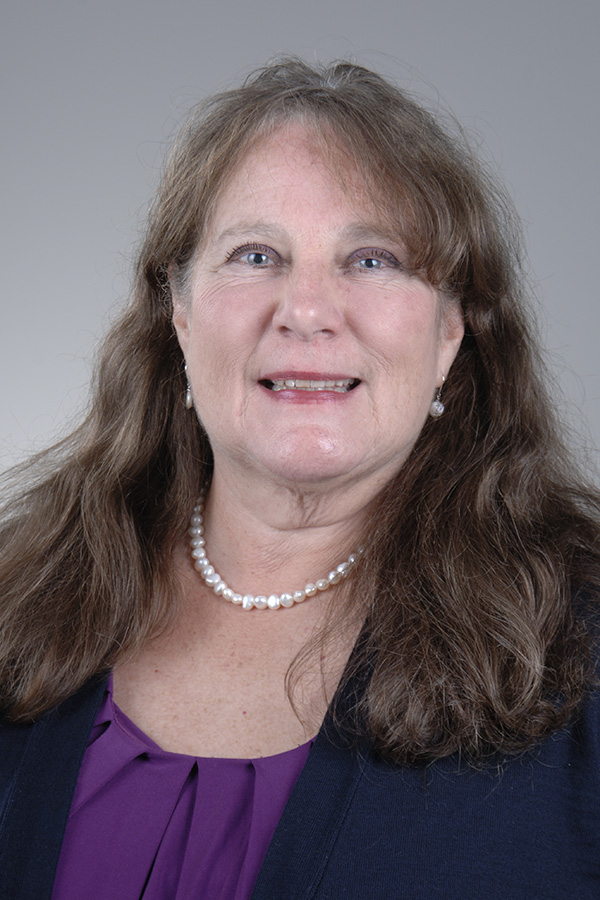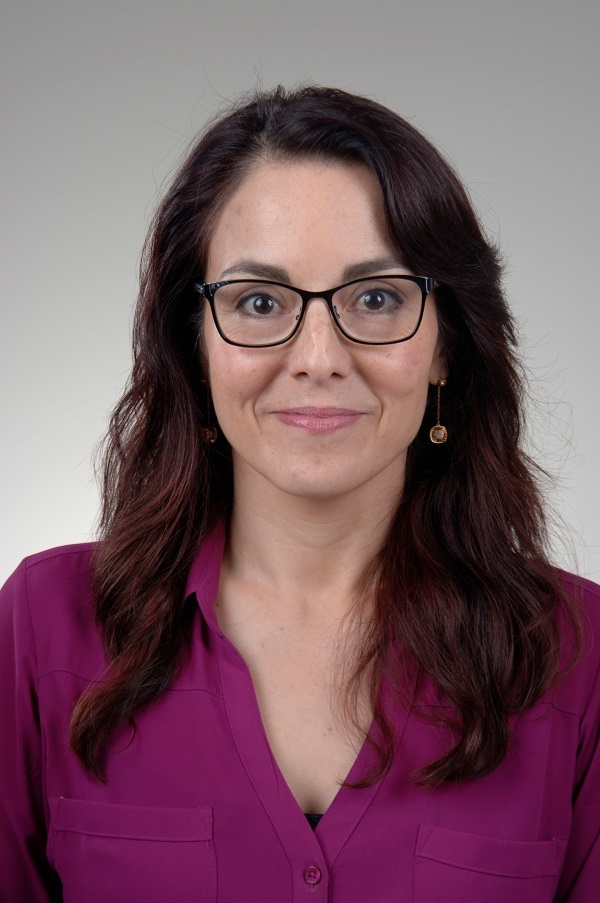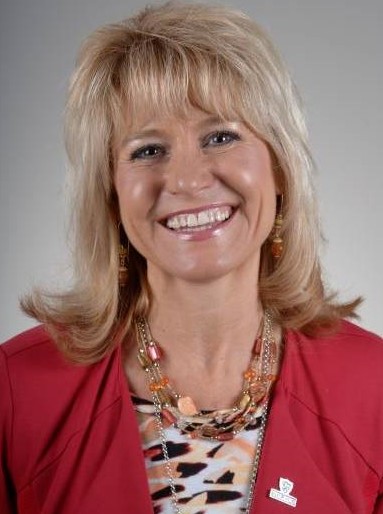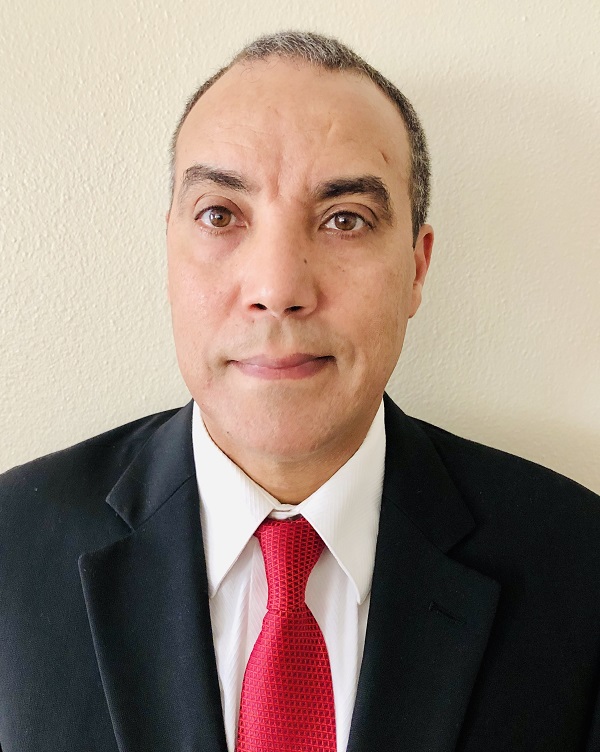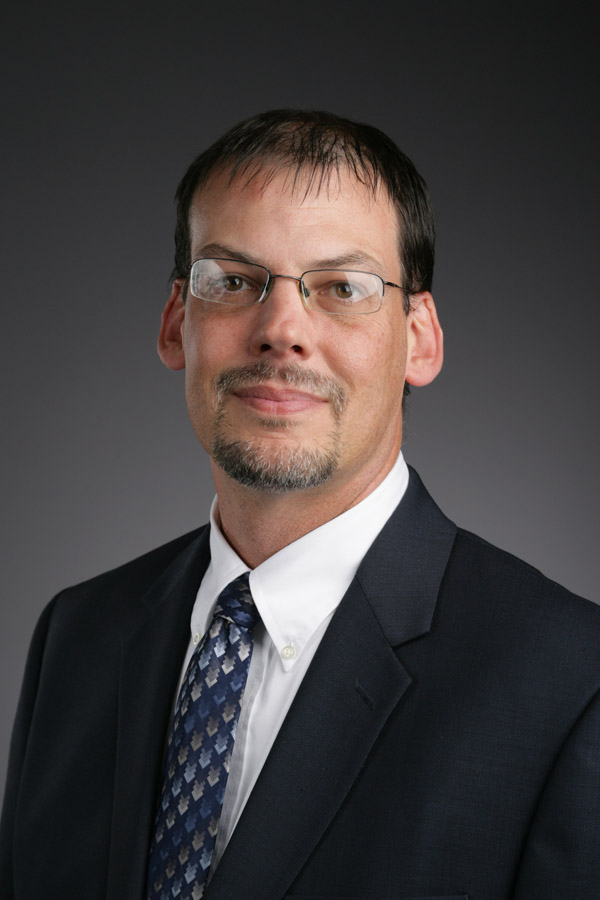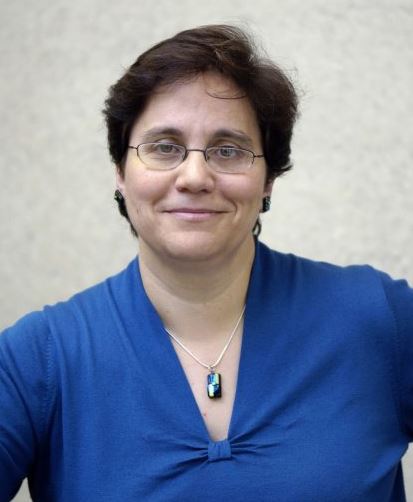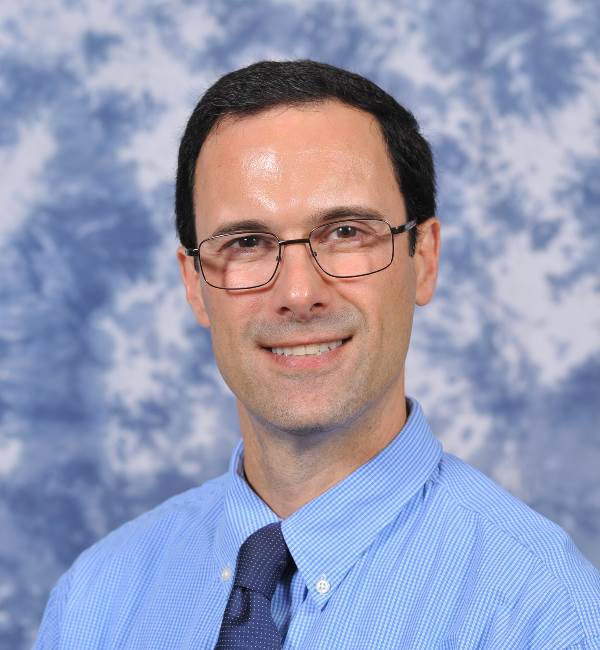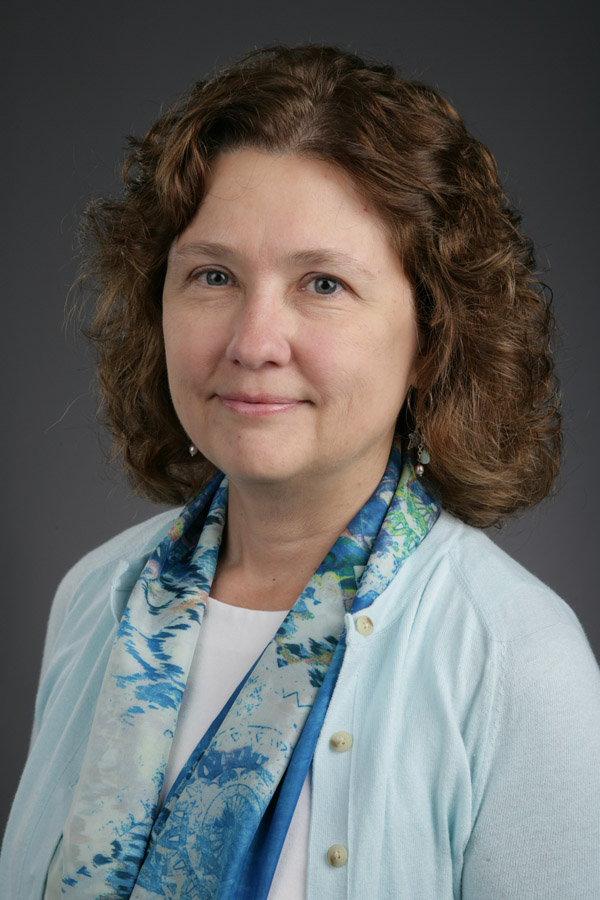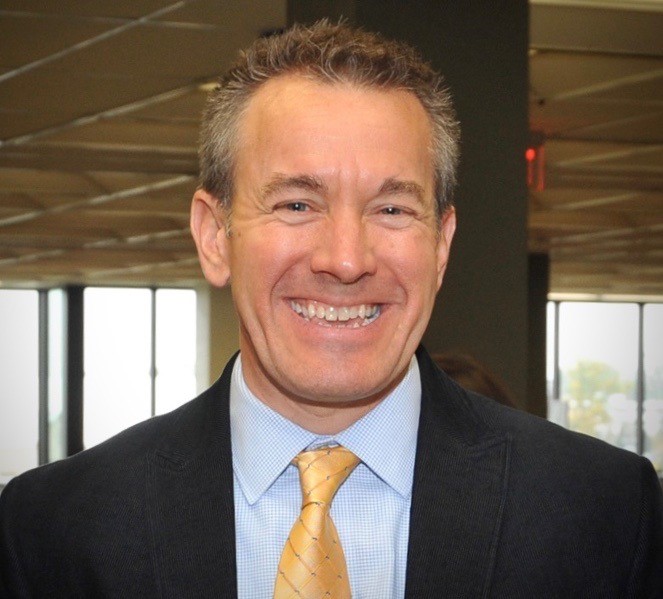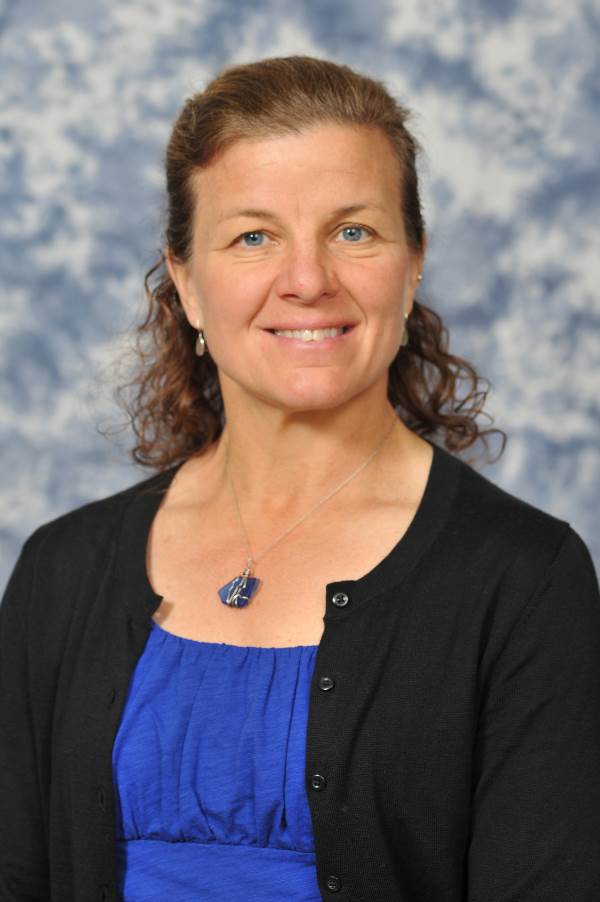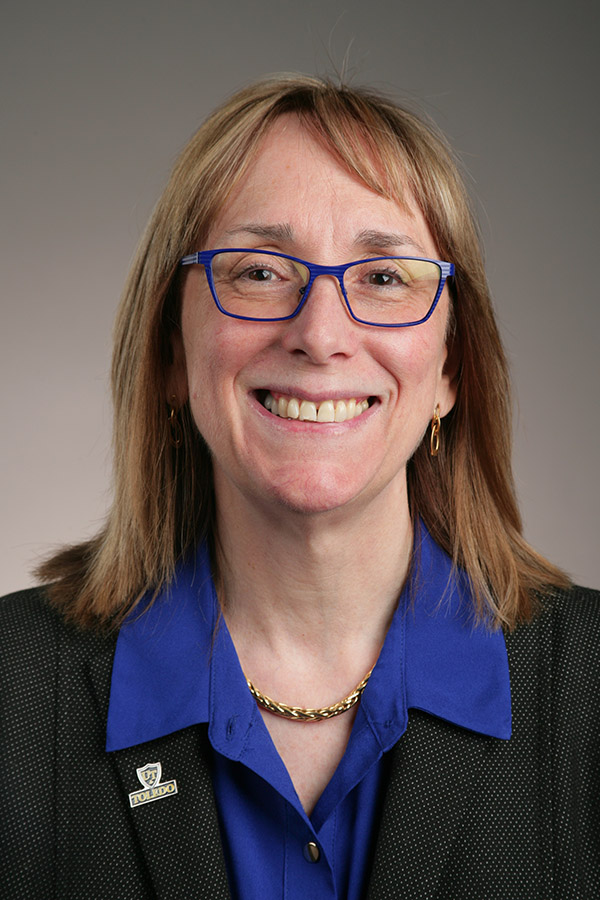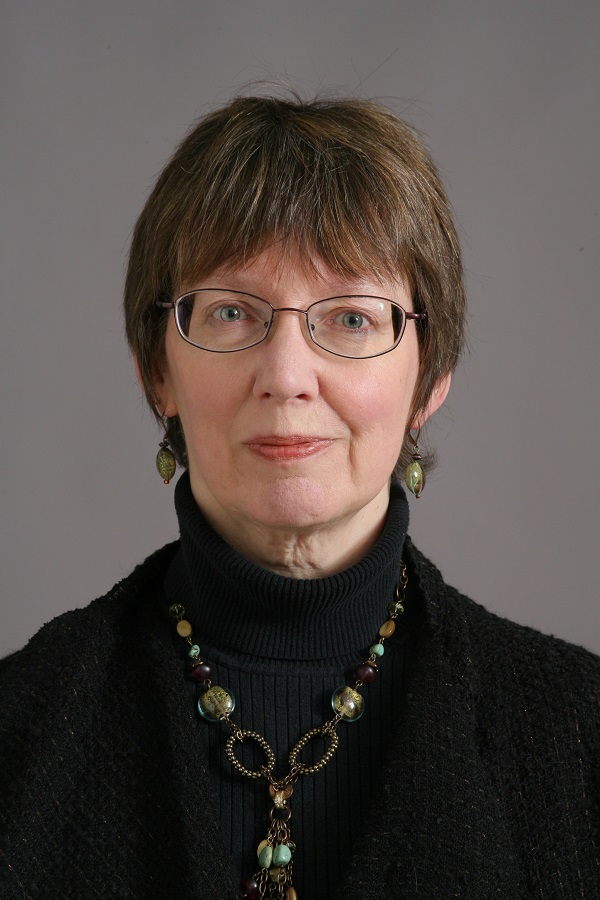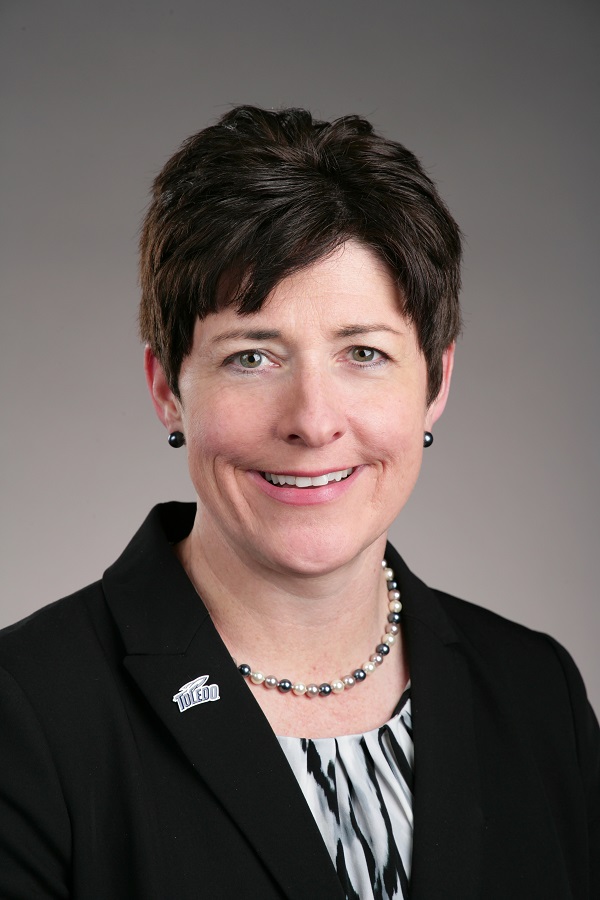MAC Academic Leadership Development Program (ALDP)
See list of UToledo's MAC Fellows
Overview
The University of Toledo is committed to providing opportunities to help prepare future academic leaders, and we invite faculty who are interested to consider applying to serve as a University of Toledo Fellow in the Mid-American Conference (MAC) Academic Leadership Development Program (ALDP) for the 2025-2026 academic year.
The University of Toledo has joined other colleges and universities in the Mid-American Conference to participate in the MAC Academic Leadership Development Program. Initiated in 2017, the mission of the MAC leadership program is to identify, develop, prepare and advance faculty as academic leaders from MAC member institutions. The program provides an opportunity for faculty to gain valuable knowledge and experience in academic leadership by working closely with faculty and administrative colleagues from other MAC colleges and universities.
The MAC leadership development program has two components: participation in a University-level leadership development program at the fellow’s home institution; and participation in monthly developmental meetings with all the MAC Fellows.
Nominations and applications are currently being accepted for full-time faculty to serve as fellows and should be submitted by Tuesday, June 30, 2025, with a completed application form, a letter of recommendation from the faculty member’s dean, and a copy of the faculty member’s curriculum vitae. Up to four UToledo MAC Fellows will be selected.
For additional information regarding the MAC ALDP, contact Dr. Jeanne Kusina, Director, Center for Excellence in Teaching and Learning, Jeanne.kusina@utoledo.edu.
UTOLEDO MAC Academic and Leadership Program Fellows
2024-2025 Fellows
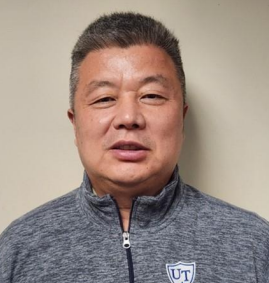
Jiayong Liu
Jiayong Liu is an Associate Professor in the Department of Orthopedic Surgery. He completed his medical education, orthopedic residency, and spine fellowship in Henan, China. Following this rigorous training, he practiced as an orthopedic spine surgeon in Zhuhai for over a decade. In the latter part of my tenure, he faced challenges as an attending physician. Still, he began to embrace leadership roles, eventually serving as vice chair and chair of the spine department. This experience taught me the importance of collaboration, as I worked closely with a team of 12 attendings and over 20 nurses. Under our collective efforts, our department emerged as a model of excellence within our hospital and throughout Guangdong Province. This achievement led to his selection as the hospital's vice president in my final year in China. He oversaw clinical medical services at the second-largest hospital in Zhuhai City.
In 2002, Dr; Liu relocated to the United States to further my expertise, completing
a six-month orthopedic clinical and research fellowship at SUNY Upstate Medical University.
This was followed by a year as a visiting clinical scholar, during which he received
specialized training in Orthopedic Clinical Trauma Fellowship at the Medical College
of Ohio. From 2003 to 2010, he served as a Visiting Clinical Scholar and Research
Associate at The University of Toledo Medical Center. Since August 2010, he has been
an Assistant Professor in the Department of Orthopedic Surgery at UTMC, achieving
promotion to Associate Professor in May 2019.
Teaching is a core component of his professional life. He has taught an Introduction
to Orthopedic Research course for over a decade, dedicating significant time and effort
to mentoring residents, medical students, and graduate and undergraduate students
in their research endeavors. Dr. Liu's approach focuses on instilling analysis methods
and problem-solving skills and fostering passion and confidence—beyond just imparting
knowledge. Many of his students have successfully presented their research at local
and national orthopedic conferences, gaining invaluable exposure and recognition in
the field. Additionally, he guided Maumee Valley High School students in publishing
research papers and winning awards at Ohio State Science Day. His collaborative work
has resulted in over 100 peer-reviewed publications, coauthored with more than 200
medical students and residents, significantly enhancing their credentials and competitiveness
for academic and professional opportunities. This success benefits the students and
reflects positively on the University of Toledo's commitment to student development.
Hee was also honored to be one of the recipients of the 2024 Outstanding Advisor Award
at The University of Toledo.
Dr. Liu's research focuses on comparing treatment outcomes for musculoskeletal disorders
and advancing clinical and translational science. I am particularly dedicated to developing
innovative devices that improve treatment methodologies, aiming to create technologies
that will benefit millions suffering from orthopedic injuries.
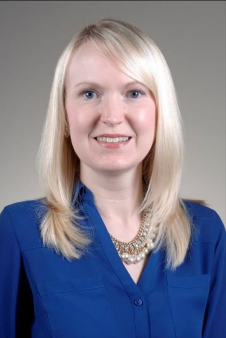
Jodi Jameson
Jodi Jameson is an Associate Professor in the University Libraries at The University of Toledo. She serves as Nursing Librarian at the Mulford Health Science Library. In her library liaison role, she provides research assistance and information literacy instruction to nursing students and faculty in the School of Nursing, and to nursing staff and administration at the University of Toledo Medical Center. She has been a professional health science librarian at UToledo for over 15 years, with previous experience at the Toledo-Lucas County Public Library. Her research interests include information literacy for evidence-based nursing practice; health information-seeking behaviors; and the history of libraries in the context of nursing education. She has published on these topics in peer-reviewed publications and presented at regional and national conferences. Her service activities at UToledo include chairing the annual Health Science Campus Artist Showcase and speaking at the annual Banned Books Vigil. She is passionate about promoting the library as a destination for curiosity and engagement. She focuses much of her library instruction on how to find current, best available research evidence, and how to evaluate and critically appraise research studies. Her goal is to foster a spirit of inquiry among the learners she interacts with and encourage lifelong learning for evidence-based healthcare decision-making.
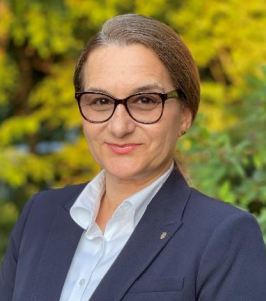
Carmen Cioc
Dr. Carmen Cioc is an Associate Professor in Mechanical Engineering Technology (MET). Since 2014 she has held several leadership roles at UToledo. She has served as the MET Program Director, Graduate Program Director for the online M.S. in General Engineering and Energy Engineering programs, College of Engineering Graduate Assessment Coordinator, ET Department Assessment Director, and a Board Member for the Catharine S. Eberly Center.
In addition to these roles, Dr. Cioc holds several leadership roles in engineering
professional organizations. She is the Vice-Chair of the American Society of Mechanical
Engineers (ASME) - MET Leadership Committee and Vice Chair of the American Society
for Engineering Education (ASEE) North Central (NC) Section. She also organized and
chaired the 2021 NC Section Annual Conference.
As an Engineering Unleashed Ambassador and Community Catalyst, Dr. Cioc is dedicated
to integrating an entrepreneurial mindset into engineering education, advancing innovative
practices within the field. Her leadership skills have been recognized through her
participation in the Society of Women Engineers (SWE) Academic Leadership for Women
in Engineering (ALWE) program and as an Executive Leadership in Academic Technology,
Engineering, and Science (ELATES) Fellow.
Dr. Cioc’s work has a deep commitment to nurturing the next generation of engineers, fostering a more inclusive and diverse engineering community, and driving forward initiatives that shape the future of engineering education. Through her various roles and initiatives, she continues to have an impact on the engineering profession, championing innovation, inclusivity, and excellence.
2023-2024 Fellows
Dr. Heba Abdel-Rahim
Dr. Heba Abdel-Rahim is an Associate Professor of Accounting and the Interim Chair of the Department of Accounting at the John B. and Lillian E. Neff College of Business and Innovation at the University of Toledo. She holds a Ph.D. degree in Accounting from Georgia State University and a Master of Accounting degree from the University of Florida. Dr. Abdel-Rahim's research expertise is on the effects of managerial accounting practices and incentive schemes on firm outcomes using applications from experimental economics and psychology.
Her research has been published in top-tier accounting journals (Financial Times List of Top Journals) such as Accounting, Organizations, and Society; and Contemporary Accounting Research. Dr. Abdel-Rahim's research received multiple external grants from institutions such as the Institute of Management Accountants (IMA) and the Center for the Economic Analysis of Risk (CEAR). Dr. Abdel-Rahim also serves as the Director of the Management Accounting Section of the American Accounting Association (AAA) for the Ohio Region. Dr. Abdel-Rahim serves as a reviewer for multiple top-tier accounting journals and has been invited to give talks and presentations at more than 30 international and regional conferences, and workshops since she completed her PhD degree. At the University of Toledo, Dr. Abdel-Rahim has taught accounting courses at the undergraduate and graduate levels, and has served in the dissertation committees of two doctoral students at the Neff College of Business and Innovation.
Dr. Wissam AbouAlaiwi
Dr. Wissam AbouAlaiwi is a professor in the Department of Pharmacology and Experimental Therapeutics in the College of Pharmacy and Pharmaceutical Sciences. He has earned a Ph.D. in Biology with outstanding achievement from The University of Toledo, 2007. He earned M.S. in Biology from American University of Beirut, Beirut, Lebanon, 2002 and a M.S. in Biology (degree equivalent to U.S. M.S. in Biology & Teaching Diploma of Biology & Chemistry at secondary school level) in Lebanese University, Beirut, Lebanon, 2000. He also earned a T.S. in Medical Laboratory Technology from the Institute of Medical Laboratory Technology, Beirut, Lebanon 1996.
The AbouAlaiwi Lab studies the role of primary cilia in kidney, cardiovascular and neurodegenerative disease. Polycystic kidney disease (PKD), affecting 1 in 500 individuals, is the most commonly occurring genetic disease arising from dysfunction of primary cilia (ciliopathy) due to mutations in Pkd1/2 genes encoding for polycystin-1 (PC1) and -2 (PC2), respectively. Although PKD is a systemic disease hallmarked by fluid-filled kidney cysts, cardiovascular complications are the leading cause of death among PKD patients. PKD patients are more likely to develop hypertension and congestive heart failure. A primary cilium is a mechanosensory organelle that extends from the apical membrane of a cell to the lumen of blood vessels and kidney tubules. We and others have independently studied abnormality in primary cilia, cell proliferation and polyploidy in the vascular and renal systems in PKD. We propose cilia as a fluid sensory organelle required for sensing fluid shear stress within the cardiovascular and renal systems.
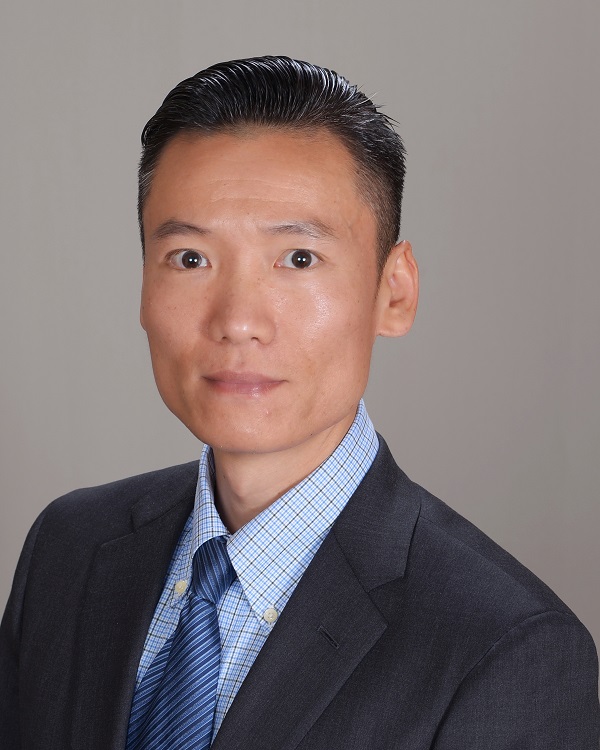
Dr. Liang Cheng
Dr. Liang Cheng is Professor and Chair of the Department of Electrical Engineering and Computer Science at The University of Toledo, with expertise in intelligent infrastructure (e.g. underground sensing), IoT, and CPS (including autonomous systems, e.g. autonomous drones). He was a founding member of the INE (Integrated Networks for Electricity) research cluster and a leadership council member of the I-CPIE (Institute for Cyber Physical Infrastructure & Energy) at Lehigh University. Dr. Cheng led more than 20 funded projects as the PI or a co-PI with sponsors including DARPA, DOE, DOT, NSF, industry, etc., and served as the advisor for 3 postdocs, 7 Ph.D. dissertations, and 27 Master’s theses. He was a Visiting Professor at TU Dortmund and University of Science and Technology of China during his sabbatical, and he also worked at Rutgers University and Duke University in his Ph.D. studies. While serving as a Faculty Senator and a Faculty Tri-Chair of Council for Equity and Community at Lehigh University, Dr. Cheng provided leadership in updating Rules and Procedures of the Faculty with new categories of faculty (e.g. Research Faculty and Teaching Faculty) added with their rights and responsibilities defined for equity and long-term growth of the university and in updating the Bylaws of the Council for Equity and Community to include the representation of Professor of Practice and achieve more diversity, equity, and inclusion for the Council and the university.
Dr. Kasey Tucker-Gail
Dr. Kasey Tucker-Gail is a Professor in the Criminal Justice Program at the University of Toledo. She earned her Ph.D. in sociology from Western Michigan University with an emphasis on criminology, law enforcement and applied research methodology. She also has a cognate concentration in public administration (focusing on policy analysis & program evaluation) as well as adult learning methodologies. Her academic pursuits focus on three areas of study including law enforcement, victim advocacy and drug courts. She served on the Chief's Advisory Board for Toledo Police Department (TPD) and has been involved in several community-based research initiatives with TPD. Specifically, she worked as a research partner on the Toledo Initiative to Reduce Violence (TCIRV) which included working with the Law Enforcement Intelligence Team and sitting on the Systems Analysis Team. Currently, her research involves law enforcement officer deaths, training and curriculum development, and community police interactions. She has also actively researched crime in neighborhoods and crime mapping data with her colleagues.
Dr. Tucker-Gail is an awarded, well published impactful scholar within her discipline. She has been the recipient of several Ohio Criminal Justice Services grants and a MacArthur Grant for Misdemeanor Justice. Currently, she serves as the lead principal investigator for the University of Toledo’s Coordinated Community Response Team (UT CCRT) to address sexual assault, domestic violence and stalking on campus. The three-year funds were awarded by the Department of Justice (DOJ) | Office on Violence Against Women (OVW) in 2016 and 2020. Likewise, she and her team received Victims of Crime Act (VOCA) grant funding from the Ohio Attorney General five different times. Most significantly, those funds gave Dr. Tucker-Gail the opportunity to finally open the Center for Student Advocacy and Wellness (CSAW). As the founding Director of CSAW she was immensely proud to help victims on campus find a safe place to receive support, advocacy, and programming.
Dr. Tucker-Gail sits on the Editorial Board for Drug Court Review at the National Drug Court Resource Center in North Carolina. Notably she has served on University of Toledo (UT) Taskforce on Sexual Assault, The University of Toledo Opioid Taskforce, and the University of Toledo Taskforce on Violence. She serves her peers actively on the Health and Human Services college council as a past chair, a faculty senator member, and sits on many college and campus committees while providing mentorship for other faculty. Finally, Dr. Tucker-Gail is very active in her community where she serves on boards, committees or is engaged with several organizations to promote activity, or leadership and skill development for youth.
2022 - 2023 Fellows
Terry Bigioni
Dr. Terry Bigioni is a Professor in the Department of Chemistry and Biochemistry in the College of Natural Sciences and Mathematics at the University of Toledo. Dr. Bigioni earned both a B.Sc. in Chemical Physics and an M.Sc. in Chemistry from the University of Toronto followed by a Ph.D. in Chemistry from the Georgia Institute of Technology with a minor in Solid State Physics and a certificate in Management of Technology. After graduate school, Dr. Bigioni spent two years in the software industry, three years at the James Franck Institute of the University of Chicago, and a year at the NASA Center for Nanotechnology at the NASA Ames Research Center in Mountain View, CA. He joined the University of Toledo in 2006 and was promoted to Associate Professor in 2011 and Professor in 2015. He served on NSM Council from 2018-2021, UT-AAUP Executive Board from 2018-2021, and Faculty Senate from 2018-present including as Chair of Academic Programs and as President. Dr. Bigioni studies and develops new types of nanomaterials including metal clusters, semiconductor nanostructures, and thin films and coatings. Funding sources include the National Science Foundation (including a CAREER Award), the United States Air Force, the State of Ohio, Wintek Corporation, and Promedica, with topics ranging from fundamental chemistry to alternative energy to antimicrobial coatings and agents.
Bashar S. Gammoh
Dr. Gammoh is the Associate Dean for Graduate Programs and Research and Professor of Marketing and International Business at The University of Toledo John B. and Lillian E. Neff College of Business and Innovation. He holds a Ph.D. in Marketing from Oklahoma State University, an MBA from University of Jordan and a BS in Economics from University of Yarmouk, Jordan. Dr. Gammoh joined The University of Toledo Department of Marketing and International Business in 2006, was promoted to Associate Professor in 2012 and Professor in 2018. Between August 2019 and July 2021, he served as the Academic Director for the MBA/EMBA programs at Neff College of Business and Innovation. Dr. Gammoh teaches undergraduate and graduate courses in marketing strategy, brand management, consumer behavior, integrated marketing communication and international marketing. His research interests and publications are in the areas of marketing strategy, brand management and cross-cultural international marketing issues. Dr. Gammoh is the recipient of several awards including Gutteridge Dean’s Excellence Award and faculty research and service awards at The University of Toledo’s Neff College of Business and Innovation.
Zahoor Shah
Dr. Zahoor Shah is a Professor and Associate Dean for Graduate Education and Research in the College of Pharmacy and Pharmaceutical Sciences (CPPS) at the University of Toledo. Dr. Shah earned his Ph.D. in Neuroscience from Hamdard University in 2002 and completed his postdoctoral training at the University of Louisville (2002-2005) and Johns Hopkins University School of Medicine (2005-2008). While at Johns Hopkins, He received a highly prestigious NIH training award K99/R00 and, as a result, was appointed as an instructor in 2008. For the R00 phase of the NIH award, Dr. Shah joined the University of Toledo in 2009 as an Assistant Professor and rose through the ranks to be appointed a Full Professor in 2019. His first administrative appointment as a Vice-Chair/Director of Graduate Education was in 2016. After serving as a chair of the Graduate Education and Research Committee in the College for one year, he was appointed as an Associate Dean for Graduate Education and Research in 2021. Dr. Shah's research interests include molecular mechanisms of stroke with the main focus on countering neuroinflammation, and his lab has recently developed a small molecule that targets neuroinflammation. He has supervised numerous graduate students and has published over 83 publications. He has received several honors and awards and has four patents. Besides NIH K99R00 (2009), Dr. Shah has received grants from AHA (2017) and is currently serving PI on NIH R01 (2020) and Co-I on NIH R01 (2018), which has helped him to further his research and training for graduate and undergraduate students.
2021 - 2022 Fellows
Melissa Valiska Gregory
Melissa Valiska Gregory is the Associate Dean for Undergraduate Education and Curriculum and Professor of English in the College of Arts, Social Sciences and Education at the University of Toledo. After receiving her PhD from Indiana University with a certificate in Victorian studies, Dr. Gregory joined the UToledo English department where she specialized in nineteenth-century British literature and also coordinated the department's Honors program. She also co-founded the interdisciplinary, international professional organization the North American Victorian Studies Association, which gave her the President's Award in 2017 in recognition of her "extraordinary service and significant contribution to the diversity and vitality of Victorian studies." At UToledo, Dr. Gregory was the inaugural Presidential Fellow in 2016, where she worked with then-Provost Andrew Hsu to create new university-level tenure and promotion guidelines. Since stepping into the CAL dean's office in 2019, Dr. Gregory has worked directly with all arts and humanities departments as well as the College's interdisciplinary programs, helping to coordinate their daily activities and also advancing their long-term goals. Dr. Gregory has been instrumental in supporting key recruitment, retention, and curricular initiatives in CAL, and her focus on undergraduate education has led to significant improvements in College-wide participation in undergraduate research. Recently, she has served as the Chair of the Faculty Senate UToledo Core curriculum, where she initiated the first-ever external review of the Core as an academic program.
Sheryl A. Milz
Dr. Milz is professor in the School of Population Health in the College of Health and Human Services at the University of Toledo. She is also the director of the Master of Public Health Program. Before joining the university, she was an industrial hygienist and safety and occupational manager at the Great Lakes Naval Hospital. Her research interests are in human exposure assessments, risk assessment, and environmental and occupational epidemiology. Dr. Milz has been active in the American Industrial Hygiene Association (AIHA) and the American Conference of Governmental Industrial Hygienists (ACGIH). She is a former chair of the AIHA Exposure Assessment Strategies Committee and was on the ACGIH Board of Directors for 6 years, with her term ending on December 31, 2020. She was a member of the National Academies Committee on Potential Health Risks from Recurrent Lead Exposure to DOD Firing Range Personnel and Committee to Review DoD's Proposed Occupational Exposure Limits for Lead. She received her MS in preventive medicine (epidemiology) from The Ohio State University and her PhD in public health sciences (industrial hygiene) from the University of Illinois at Chicago.
Jared Oluoch
Jared Oluoch is a tenured Associate Professor of Computer Science and Engineering Technology (CSET) in the Department of Engineering Technology (ET) at the University of Toledo. He is the Program Director for both the CSET and IT programs, and the Associate Chair of the ET Department. He received his PhD in Computer Science and Informatics from Oakland University in 2015 and an MS in Management Information Systems form the University of Nebraska Omaha in 2009. He teaches undergraduate courses in object-oriented programming, software engineering, server-side programming, ET orientation, and professional development. He has received numerous nominations for the University's Outstanding Advisor Award. He advises and/or co-advises MS and PhD students from the Department of Electrical Engineering and Computer Science (EECS). As Program Director of CSET and IT, he is responsible for scheduling courses, mentoring part-time instructors, providing academic advising, and leading efforts to maintain ABET accreditation. As Associate Chair, he provides advice to the Chair on departmental matters, assists with program reviews and reports, and participates in budget discussions. He also assists the chair with initiatives to improve engagements with education partners, including industry, alumni, K-12 schools, and community colleges. His research focuses on security and trust mechanisms for Vehicular Ad hoc Networks (VANETs). He has published in peer-reviewed conferences and journals. He has secured external funding as a PI on NSF grants totaling nearly $2 million. He has served the professional community as a peer-reviewer in conferences, journals, and grant panels.
Eileen Walsh
Dr. Eileen Walsh is Associate Dean for Research and Scholarship, and Director of the School of Nursing (CON) Honors Program and Continuing Education. She has taken a leadership role in the development, implementation, and evaluation of numerous CON initiatives and committees. Her leadership on a University level includes roles with Research Council, Graduate Council, Undergraduate Research, and Research Administration. Regionally, she served in leadership roles in Sigma Theta Tau (International Honor Society of Nursing) Region 10, and locally. She is a past national president of Society for Vascular Nursing and serves on SVN Convention Planning, and Research and Practice Committees. Her research interests and publications focus on cardiovascular topics including vascular disease prevention, management, and rehabilitation, arterial and venous disorders, and exercise interventions. She has presented at numerous regional, national, and international meetings. She has received internal and extramural grants and collaborates with vascular colleagues across the US, Australia, and Singapore. She serves as an abstract/grant reviewer for Sigma, Midwest Nursing Research Society, and the American Heart Association. She serves on the editorial board of the Journal of Vascular Nursing, and reviews for several journals. She was co-editor of the first Core Curriculum for Vascular Nursing, served on the American Nurses Association Content Expert Panel for Cardiovascular Certification, and is the co-author of three national guidelines led by the American Heart Association. Dr. Walsh is passionate about mentoring students to achieve high levels of scholarship and assists CON faculty in advancing their research and scholarship through presentations, publications, and grants.
2020 - 2021 Fellows
Viviana Ferreira
Dr. Ferreira is an Associate Professor in the Department of Medical Microbiology and Immunology in the College of Medicine and Life Sciences (COMLS). She received her D.V.M. and Ph.D. degrees from the University of Chile and completed postdoctoral training at the University of Texas. Dr. Ferreira joined COMLS in 2009 as an Assistant Professor and was promoted to Associate Professor with tenure in 2015. Dr. Ferreira's research, which focusses on part of innate immunity (i.e. the complement system), has been published in internationally-recognized scientific journals and has been continuously funded over the years, mainly by the American Heart Association and the National Institutes of Health. She has recently completed a 4 year term as a standing member on an NIH study section panel. Dr. Ferreira also has a passion for teaching and mentoring; thus, she has served as major advisor to graduate students while pursuing their Ph.D., M.D./Ph.D., and Masters degrees, she participates in the COMLS teaching mission for Medical School and Graduate students, and serves as mentor for underrepresented students. Dr. Ferreira has obtained the 2013 Dean's Teaching Excellence and the 2014 Dean's Research Excellence Awards, and was named a 2019 American Association of Immunology Career in Immunology Fellow. She participates in several leadership roles at UToledo and in the national and international scientific communities including, but not limited to, co-direction of the Infections course for M1 students, direction of the Advanced Immunology graduate course, Councilor on the International Complement Society Board, and Program Committee member for the American Association of Immunologists.
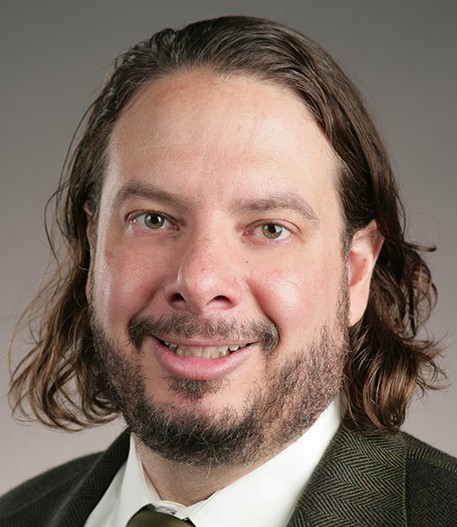
Tavis J. Glassman
Tavis J. Glassman, PhD, MSEd, MPH, CHES, CCPH serves as a professor at The University of Toledo in the School of Population Health. He earned his doctorate from the University of Florida and Masters in Public Health from The Ohio State University. He is a Master Certified Health Education Specialist and a Certified Communicator in Public Health. He teaches Drug Awareness, Human Sexuality, Mental Health, Social Marketing, Health Communication and Health Behavior courses. His research interests involve the prevention of high-risk behaviors among college students. For example, he has designed interventions to reduce the excessive alcohol consumption associated with tailgating on game-day, 21st birthday celebrations, spring break, etc. Further, he designs, implements, and evaluates health communication messages, which promote healthy lifestyles. He is an inductee of the Start High School Hall of Fame and a Jefferson Community Service Awardee. In January 2021, Dr. Glassman will begin his appointment as Associate Chair.
Marty Sexton
Dr. Marty Sexton serves as the Associate Dean of Academic Affairs and Interim Director of the Learning Resource Center, Simulation and Interprofessional Education in the School of Nursing (CON). She also served the college as Chair of the Department of Adult, Family and Population Health for 4 years. Recently, she led the CON 2019 Commission on Collegiate Nursing Education (CCNE) Accreditation self-study and on-site visit. Maximal accreditation was granted to all programs. Dr. Sexton has been a leader in the development, implementation and evaluation of the University’s Interprofessional Education Program (IPE) which provides didactics, simulation and experiential opportunities for over 550 students from 11 different healthscience disciplines every year. She is active in the American Interprofessional Health Collaborative (AIHC) and National Academies of Practice (NAP) serving in leadership roles in both organizations. The focus of Dr. Sexton’s research has an overarching purpose of improving interprofessional education and collaborative practice (IPE/C). Within that domain she has published and presented with colleagues on topics such as: interprofessional education pedagogy, interprofessional conflict resolution, emergent evacuation techniques, and active shooter awareness. She is the Co-PI of a joint CON and COMSL Collaboration Grant entitled” Assessing and Evaluating the Effectiveness of a Simulation-based, Comprehensive Approach to Active Shooter Training”. In addition, Dr. Sexton is the principle investigator for an Ohio Board of Nursing Education Grant entitled “Increasing Enrollment in the University of Toledo’s Competency-Based (CBE) RN to BSN Program”.
Youssef Sari
Dr. Youssef Sari received his MS in Biomechanics and Physiology of Movement from Orsay University (France) and his Ph.D. in Neuroscience from Pierre and Marie Curie University (Sorbonne University), Institute of Neurosciences (France). He subsequently held postdoctoral fellowship and faculty research positions at Indiana University School of Medicine, Indianapolis and Bloomington, Indiana. He then moved to The University of Toledo in 2010. Dr. Sari is a Professor of Pharmacology and Vice Chair of the Department of Pharmacology and Experimental Therapeutics at the College of Pharmacy and Pharmaceutical Sciences. He is currently severing as Director of Graduate Program in his Department. He has been also serving as the Chair of the department’s personnel committee over the past six years, and this involves promotion and tenure processes as well as faculty mentoring. He has been active and successful in the recruitment of talented international students to the graduate programs in the College of Pharmacy and Pharmaceutical Sciences. He is also teaching pharmacology to medical students in the College of Medicine, and he has just been assigned as a Mission Director to mentor medical students. Dr. Sari’s research has contributed significantly to the field of drugs of abuse, including alcohol, nicotine, cocaine, opioids, and methamphetamine. He has over 105 publications in good- to high-quality, peer-reviewed research journals and over seven published book chapters. Based in his outstanding achievement in his field, he is now listed as Top #1 Expert Worldwide in the area of Excitatory Amino Acid Transporter 2 in the brain by Expertscape Inc. He has received several awards and honors in recognition of his excellent contributions to the scientific literature in the field of drugs of abuse. Among these awards are the Sigma Xi Young Investigator Award, the President’s Research and Scholarship Award, Shining Star Award, and the Outstanding Faculty Research and Scholarship Award. Dr. Sari’s research programs have been funded for several years by prestigious awards from the National Institutes of Health. Based on his meritorious scientific achievements, he has secured several NIH funding for the last 15 years. He is member of several editorial boards, including Frontiers in Neuropharmacology. He has an incredible record of mentoring and tirelessly interacting with his mentees and other junior colleagues in and outside the laboratory. Most of his mentees are currently holding the title of Assistant Professor or Assistant Professor/Head of the Department at International Universities.
2019 - 2020 Fellows
Jonathan Bossenbroek
Dr. Jonathan Bossenbroek is a Professor of Environmental Sciences at the University of Toledo and serves as the Director of the Office of Competitive Fellowships and Undergraduate Research. He earned his undergraduate degree from Calvin College, his M.S. from the Univ. of Wisconsin – Green Bay, and Ph.D. in ecology from Colorado State University. Prior to coming to Toledo, he had a post-doctoral fellowship at the University of Notre Dame. During the 2013-14 academic year, he spent his sabbatical in Trinidad and Tobago on a Fulbright Scholarship. His research focuses on applying the theories and concepts of landscape ecology to investigate issues such as invasive species biology, conservation biology and ecosystem management. The investigative approach of his lab is primarily based on predictive modeling and then linking these predictions with field and laboratory studies. Through this approach, he has undertaking projects on zebra mussels, emerald ash borer, hydrilla, yellow perch, and lake sturgeon. The applied nature of Dr. Bossenbroek's work has enabled him to interact with regional, state, and federal agencies and non-governmental organizations to improve the management and policies that influence the regions natural resources.
Maria Coleman
Dr. Maria Coleman received her B.S. in Chemical Engineering from Louisiana Tech University and Ph.D. from The University of Texas at Austin. She is a Professor and Chair of Chemical Engineering and Associate Director of the Polymer Institute at the University of Toledo. She is committed to student learning and development and has been very involved in mentoring graduate students and young faculty. Her research focuses on polymers and nanocomposites and has been funded through federal, state and industrial sources including the prestigious NSF Presidential Faculty Fellowship. She currently works with multidisciplinary teams to develop renewable, recyclable polymers aimed at reducing the environmental impacts of plastics.
Scott Molitor
Dr. Scott Molitor earned his B.S.E. in Engineering Science at the University of Michigan and later earned his Ph.D. in Biomedical Engineering at the Johns Hopkins University School of Medicine. Following his Ph.D., he completed two postdoctoral fellowships in otolaryngology - head and neck surgery; the first at the Johns Hopkins University School of Medicine and the second at the University of North Carolina at Chapel Hill. Dr. Molitor joined the University of Toledo Department of Bioengineering in 2000. He was named as the Bioengineering Undergraduate Program Director in 2001, was promoted to Associate Professor in 2006 and Professor in 2018. Between July 2014 – January 2019, he served as the Associate Dean of Undergraduate Studies for the University of Toledo College of Engineering. As of February 2019, Dr. Molitor has been serving as the Senior Associate Dean for Academic Affairs. Dr. Molitor's previous research interests include molecular mechanisms of cellular excitability, computational modeling of neuronal function, auditory neuroscience and treatments for traumatic brain injury. He has supervised the thesis and dissertation work of numerous graduate students working in these research areas. Besides his teaching and administrative responsibilities in the College of Engineering, his current educational interests include preparing high school and first year college students to study engineering mathematics, and the teaching of science and engineering to young children.
Rebecca Schneider
Dr. Rebecca Schneider is a Professor of science and teacher education, and Associate Dean of Graduate Studies for the Judith Herb College of Education at the University of Toledo. She received her Ph.D. in Science Education from The University of Michigan and is a Judith Daso-Herb Endowed Co-Chair in School-University Partnerships in Teacher Education. Her design-based research explores how teachers and those who educate them gain the knowledge and skills necessary to be effective and how guidance can support their development. Her work includes examining pedagogical content knowledge as a construct from a teacher educator's perspective and within a learning progression framework; developing programs to prepare teachers to be culturally responsive and ambitious educators who can meet the learning needs of all their students; and exploring how e-learning environments can support professional conversations, learning, and partnerships for novices and their mentors.
2018 - 2019 Fellows
Jason Huntley
Jason Huntley received both his M.S. in Microbiology and Ph.D. in Veterinary Pathology from Iowa State University in Ames, Iowa. Following a postdoctoral fellowship at the University of Texas Southwestern Medical Center in Dallas, Texas, Dr. Huntley joined the faculty in the Department of Medical Microbiology and Immunology at the University of Toledo College of Medicine and Life Sciences in 2010. Dr. Huntley currently is a tenured Associate Professor and leads research studies funded by the National Institutes of Health (NIH), Department of Defense, and Ohio SeaGrant to develop new vaccines/ treatments against bacterial pneumonia and to develop new methods to remove the harmful algal bloom toxin microcystin (MC-LR) from drinking water supplies.
Cyndee Gruden
Dr. Cyndee Gruden is a Professor of Civil and Environmental Engineering at the University of Toledo and presently the Associate Dean of Academic and Student Affairs in the College of Graduate Studies. She was raised and educated in New Hampshire. She obtained her doctorate in Civil Engineering at the University of Colorado at Boulder in 2000 and subsequently served as a postdoctoral associate at the University of Michigan in Environmental and Water Resources Engineering. In 2003, she became a member of the faculty in the College of Engineering at the University of Toledo to pursue her passion for teaching and mentoring students. Dr. Gruden and her students study urban stormwater management and modeling in the Western Basin of Lake Erie. She advocates for the implementation and optimization of green stormwater infrastructure. Her research group collaborates widely with non-profits, municipalities, community members, private sector consultants, and other academic institutions. She is engaged in extensive service to her profession through mentoring and outreach activities toward the inclusion of diverse groups in the fields of science, technology, engineering, and math.
Kristen Keith
Dr. Kristen Keith is an Associate Professor of economics at the University of Toledo where she also serves as assistant to the EVP/CFO of Finance and Administration and Faculty Associate. She earned her undergraduate degree in economics at the University of Montana and her M.A. and Ph.D. in economics from The Ohio State University. As a microeconomist, whose field of specialty is labor economics, her research has focused on the impact of individual behavior on labor market outcomes such as employment and earnings. She has published in highly ranked economic journals including The Review of Economic and Statistics and Economic Inquiry. As a member of the department of economics, she served as its undergraduate advisor and won the University's Outstanding Adviser Award in 2013. She has held several faculty leadership positons including chair of LLSS's College Council, chair of the Outstanding Advisor Award Committee, president of Faculty Senate, chair of the Senate Committee on Academic Regulations, and faculty representative for the Tuition Guarantee Taskforce.
2017 - 2018 Fellows
Holly Monsos
Holly Monsos joined the Department of Theatre and Film in 1991. She received an MFA in costume design from the University of Montana and a BA in theatre with secondary teaching certification from Michigan State University. Before joining the UT faculty, she taught and designed at the Dillard School of Performing Arts in Fort Lauderdale, Florida and spent several years as a cutter/draper in professional theatre including work with the Oregon Shakespeare Festival, Actor's Theatre of Louisville, and the San Francisco Opera. Her design work has been seen locally at the Toledo Rep. She has designed for Ms. Unseen Productions in New Zealand, for the Montana Repertory Theatre, and for the Glacity Theatre Collective here in Toledo, where she also serves as Executive Director. Holly Monsos is active in her professional organization, the United States Institute for Theatre Technology (USITT).
Amy Thompson
Dr. Amy Thompson is the Vice Provost of Faculty Affairs at the University of Toledo. She is the former UT Faculty Senate President, has co-chaired the UT Sexual Assault Prevention Taskforce, and is the current co-chair for UT Opioid Taskforce. In 2017-2018, she was selected into the prestigious MAC Leadership Program, where she represented UT at various leadership trainings. She has served as the Office of Research and Sponsored Programs Fellow and the Provost's Fellow. In these roles, she helped to create such programs as the Scholar Institute Program (SIP) and the Associate to Professor Program (ATP). Dr. Thompson received her B.S. in Public Health from Central Michigan University, her MS & Ed. in Public Health and her Ph.D in Health Education from the University of Toledo. In addition to her nine years of service at the University of Toledo, she was also a faculty member at Mississippi State University and Kent State University. Dr. Thompson is the former national president of Eta Sigma Gamma, Health Education Honorary and is the current National Advocacy Trustee for the Society for Public Health Education (SOPHE). She has published over 70 peer reviewed journal articles and secured nearly $800,000 in grant funding. Her work has been presented and published both nationally and internationally.



